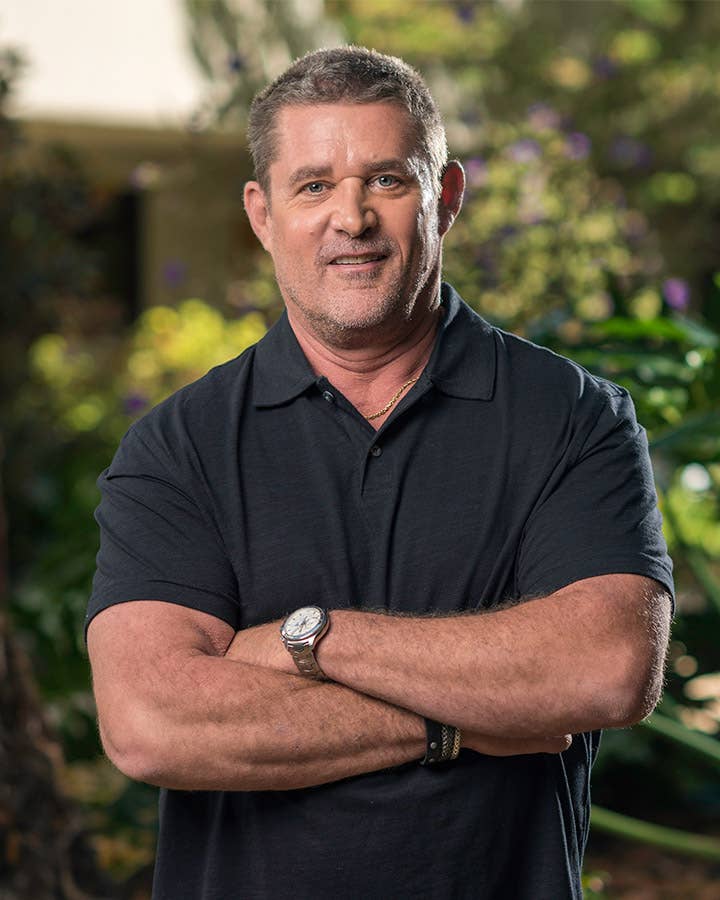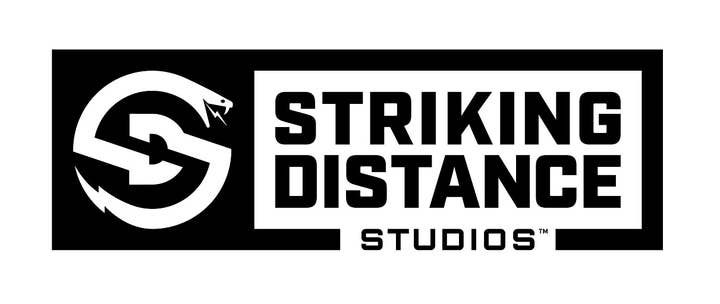Striking Distance in the era of social distance
Glen Schofield says shifting the PUBG-owned studio to remote work has changed his perspective on telecommuting
Glen Schofield says he and his team at Striking Distance had been working in their brand-new studio for all of two weeks when COVID-19 forced the team to transition to working from home.
Speaking with GamesIndustry.biz about it, Schofield clearly misses the new digs.
"We've got a motion capture stage," he says. "We're the only ones in the whole area besides [Industrial Light & Magic] that have this. We've got a dailies room with all the best equipment where we can watch our game on a daily basis and make comments just like they do in Hollywood. We've got state-of-the-art audio rooms all set up, just a great space to work in."

But as much as he wants to get back to taking advantage of the office, Schofield confesses work-from-home life has been going better than he expected. Before work-from-home was mandatory because of COVID-19, Schofield says the studio had a few trial work-from-home days to iron out the kinks and make sure everyone had what they needed to do the job properly. Computers were encrypted, teleconferencing software was set up, and measures were taken to keep the studio running like an in-person studio as much as possible.
"We had discussions before we went into this," Schofield says. "There were team meetings where we said, 'Everybody's going to be working from home for now. Please make sure you're in a secure room. If people are coming over, even your kids, please don't have anything up on the screen that could be eventually photographed, tweeted, or whatever.'"
After that preparation, Schofield says the studio got up and running with remote work faster than expected, to the point where the experience has softened what might previously have been a bit of skepticism toward the practice.
"Now I see that people are so efficient at home that it's actually changed my perspective on it"
"At first when people would say to me a few months ago, 'I'm working from home,' I'd be like, 'Oh boy, here we go. They're probably going to be working four hours,'" Schofield says. "But now I see that people are so efficient at home that it's actually changed my perspective on it. I think from now on, maybe there will be people who want to work from home one or two days a week and if they were efficient during this time, I'll be more than happy to let it go. I bet you're going to see more people working from home from time to time, not just in my company but in many companies all over."
Schofield already has a handful of permanently remote employees in Washington, Los Angeles, and New York, but those have been special cases.
"I've been open to that because they have no choice but to work from home, and a couple of them I'm worked with before, so I trusted them," he says. "Now with 75 people working from home, I trust all of them... I'll probably allow more long-distance hiring after this, because I see that it's working out."
Obviously, "working out" is a different thing from "ideal." For Schofield, working from home has forced some adaptations in his workflow. While its easy enough to move an hour-long meeting to Zoom, part of his role at the studio would be filled by more informal interactions throughout the day.
"Sometimes it's just two-to-three-minute meetings at people's desks," Schofield says. "Stop by, pat them on the back, make sure they're going in the right direction, and then maybe have a little brainstorming session with them about something they're working on. I do miss that, and that will take its toll at some point. But I've seen other game companies where they're 90% working from home, so it can be done, and we just need to adapt."
Part of Striking Distance's relatively smooth transition to remote working is due to the studio's particular situation. It was established just last year by PUBG Corp to create "an original narrative in the PUBG universe," so there's not exactly a lot of pressure on the team yet to ship something and start generating revenue.
And even with the disruption of the pandemic, Schofield says the studio has managed to hit all its deadlines without crunching. (He says individuals may have worked a few 10-hour days consecutively, but adds there's been no working-through-the-weekends crunch of the type he says he experienced earlier in his career on projects like 2003's The Lord of the Rings: Return of the King.)
"In a couple of months, if things don't clear up a little bit, we're going to have trouble with our mo-cap studio... If we were near the end of our game, I think we'd really have some problems"
"We told everybody that we don't want to see anybody working this weekend," Schofield says. "We don't want to see any check-ins this weekend. Take the weekend off, spend time with your family. Get prepared at home for what's going on, but don't work. We're very aware of crunch; I'm quite aware of it and I don't want to do it."
If Striking Distance gets further along in the development cycle and the pandemic persists, Schofield says the studio will face more challenging issues.
"In a couple of months, if things don't clear up a little bit, we're going to have trouble with our mo-cap studio," he says. "We're going to need actors to get into the mocap studio, so we'll have issues with animation. We usually go and get actors, scan their heads and faces, scan arms and legs, stuff like that. We're going to run into issues there. Our audio is going to need to work with a composer, and the composer needs to get to musicians, and that's going to be an issue. And if we were near the end of our game, I think we'd really have some problems."
Beyond that, the big challenge for him in shifting the studio to working from home has been in expanding the operation.
"The hiring is a little tough," Schofield says. "Because we're doing everything over Zoom, you can't actually meet the people. But we have been making offers via Zoom, we just may have a few more meetings with them so we can get to know their personality a bit and make sure they'll work well with the team... The one thing you can't see is body language, and that's kind of an important thing to see when you're hiring, to see how someone reacts. Right now, it's just a face."
Schofield says Striking Distance has about 50 openings, and has been filling them at a rate of about three per week. He adds the company is putting off relocating any of the new hires for now "until things clear up a bit." As for when he's expecting things to clear up, Schofield says the studio is taking it month to month at the moment.
"We've closed the office until May, and it may go on longer," he says. "I'm actually anticipating it will go on longer, so we're just trying to figure out how we get some of this other stuff done."

